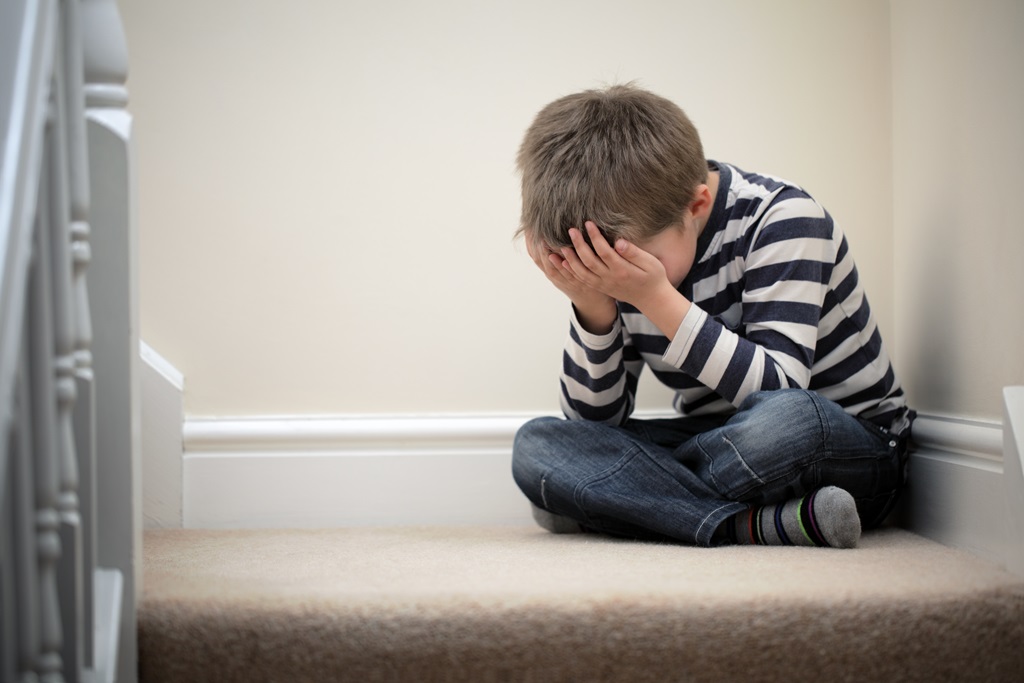- Study Says Most Parents Don’t Use Car Seats In Ride Share Vehicles Like Uber
- This 12-Year-Old Boy Is A Sophomore Aerospace Engineering Major!
- Fire Safety Experts Warn Of Hand Sanitizer Danger After A Mom and Kids Escape House Fire
- Recall Alert: Peaches May Be The Cause Of Salmonella Outbreak, 68 People Ill
- Summer Vacation In The Days Of COVID: Tips To Stay Safe
- How To Safely Grocery Shop During The Coronavirus Pandemic
- Michigan Teen With Vape-Related Illness Undergoes Double Lung Transplant
- Teen Kicks Off Anti-Vaping Campaign From Hospital Bed
- Teenager Receives Life Sentence For Strangling Sister To Death Over A Wi-Fi Password
- Toddler Falls To Death From 11th Deck of Cruise Ship
Spanking Your Toddler Can Have Effects Which Can Trigger Bad Behaviour – Even 10 Years Later


A new study has found that spanking and other physical discipline techniques continue to have adverse effects on children – for far longer than originally thought.
Children who were spanked when they were as young as 15 months old displayed negative temperament and were also less likely to show positive behaviors in the fifth grade and even into their teenage years.
The finding was much more pronounced in African-American children than those of European origin.
“How parents treat their children at a young age … significantly impacts their behavior,” says Gustavo Carlo, a study co-author who is a Milsapp professor of diversity at the university and director of its center for family policy and research. “It is very important that parents refrain from physical punishment as it can have long-lasting impacts. If we want to nurture positive behaviors, all parents should teach a child how to regulate their behaviors early,”
Past research already indicated physical punishment can have negative consequences on children’s development, but previous studies only examined short-term impacts.
In this new study published in Developmental Psychology late last month, Carlo’s team analyzed data from 1,840 mothers and children who were at or below the federal poverty level. They were identified as either of European or African descent.
Information was gathered when children were about 15 months old, 25 months old and in the fifth grade. Researchers made use of surveys of mothers and children, home visits and interviews with fifth-grade teachers to complete the study.
Long-term effects of severe discipline, such as increased aggressive and delinquent behaviors, were only found in African-American children. Previous research, however, indicated short-term negative effects for children of all races and ethnicities. Carlo says that disparity may just be tied to more frequent and more severe disciplining of the African-American children involved in the study.
Carlo added that the study does not suggest that the use of physical disciplining automatically means any child exposed to spanking or other physical discipline will end up maladjusted. However, this research, along with the majority of existing studies, bring to light that the use of such practices significantly increases the likelihood of problems later in life.
“If we think about child development as a jigsaw puzzle where many things are affecting our kids, this is one piece of the puzzle that increases the chances of negative child outcomes,” he said. “As a parent, it is worth considering whether it is worth the risk, especially when there are many other alternatives available.”
Carlo says there are alternative techniques to discipline children including time outs, distractions, removing them from the situation, moral conversations and loss of privileges. While physical punishment and yelling are both relatively bad for children, verbal discipline may not be so harmful if done in a controlled manner that relays a message that the child’s behavior is unacceptable.








0 comments